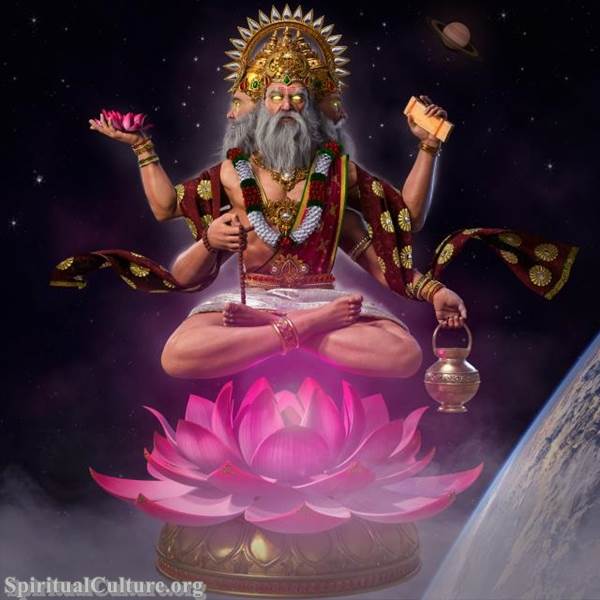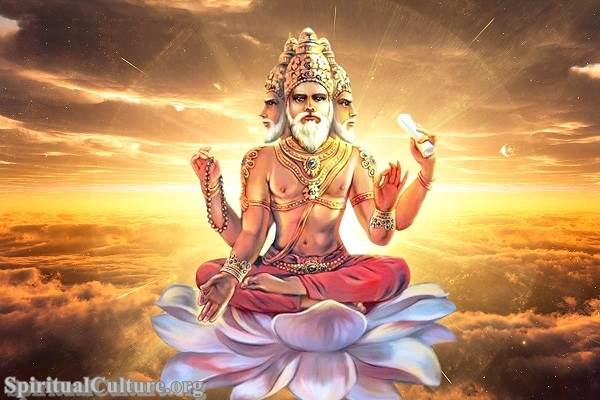In every corner of India and wherever Hindu communities flourish, festivals light up not just homes but hearts. They are colorful, loud, sacred, and jubilant. But beneath the surface of sweets and songs, of lamps and laughter, lies something deeper—something timeless.
As Spiritual Culture, we invite you to explore the profound truth of Hindu festivals. These are not merely social customs or calendar events. They are sacred doorways. Each one is a living symbol, a spiritual reminder, a cosmic echo. This article will unveil how Hindu festivals, far beyond celebration, are actually acts of remembrance, awakening, and spiritual alignment—designed to nourish the soul and realign the world.
Let us journey through the sacred calendar, discovering not just what is celebrated, but why it matters.
The Sacred Purpose of Festivals in Hindu Thought
Beyond Merriment: A Divine Cycle of Renewal
Hinduism teaches that all of life is sacred—a manifestation of the Divine. Festivals are moments when this truth is honored collectively. Unlike holidays rooted in mere national or seasonal remembrance, Hindu festivals are deeply entwined with dharma (righteous living), karma (action), and moksha (liberation).
They are spiritual landmarks, aligning the human spirit with the rhythms of nature, the cosmos, and the soul.
“Kalaya tasmai namah” — Salutations to Time, the eternal witness.
— Atharva Veda
Each festival is not just a date. It is a window into eternity, a divine opportunity to pause, reflect, cleanse, and rise.
Major Festivals and Their Inner Significance
Diwali — The Festival of Light and Inner Victory
Perhaps the most widely celebrated Hindu festival, Diwali (or Deepavali) symbolizes the triumph of light over darkness, knowledge over ignorance, and hope over despair. Families light oil lamps (diyas), burst fireworks, and offer prayers to Lakshmi, the goddess of wealth.
But Diwali is not just about outer illumination—it’s about inner enlightenment.
“Lead me from darkness to light, from the unreal to the real, from death to immortality.”
— Brihadaranyaka Upanishad 1.3.28
Every diya lit is a vow to banish ignorance. Every sweet shared is a gesture of divine joy. Spiritually, Diwali invites us to clean not just our homes, but our hearts.
Holi — The Festival of Colors and Forgiveness
Often called the “festival of colors,” Holi is a celebration of divine playfulness and human renewal. It commemorates the story of Prahlad’s faith, the burning of Holika, and the love of Radha and Krishna.
Spiritually, Holi is about burning the ego and beginning again. In a swirl of colors, people let go of grudges and bathe in shared humanity.
“He who sees all beings in the Self, and the Self in all beings, never turns away from it.”
— Isha Upanishad 6
In Holi, colors are not random—they symbolize the essence of creation. To throw color on another is to say, “You and I are one.”
Navaratri — The Festival of the Divine Feminine
Celebrated over nine nights, Navaratri honors the Goddess in her fierce and nurturing forms—Durga, Lakshmi, and Saraswati. It is a time of fasting, dancing, and devotion.
On a deeper level, Navaratri is about inner conquest—a symbolic slaying of the demons within: arrogance, greed, and fear.
Each night represents a step in spiritual transformation:
- The battle with inner demons (Durga)
- The awakening of abundance (Lakshmi)
- The flowering of wisdom (Saraswati)
“Yā devī sarva-bhūteṣu śakti-rūpeṇa saṃsthitā
Namastasyai namastasyai namastasyai namo namah”
— Devi Mahatmya
(To that Divine Goddess who resides in all beings as energy—salutations again and again.)
Rama Navami and Krishna Janmashtami — The Incarnation Festivals
These festivals celebrate the earthly births of Lord Rama and Lord Krishna, avatars of Vishnu. But the real celebration lies in the realization that the Divine still takes form to restore balance in our world—and in ourselves.
“Whenever there is a decline in righteousness… I manifest Myself.”
— Bhagavad Gita 4.7
The stories of Rama and Krishna are more than ancient epics. They are living parables, showing us how to act with virtue, love, and courage in a world of complexity.
To celebrate their births is to invite their qualities into our lives.
The Cosmic Calendar and Sacred Timing
Why Festivals Follow Lunar and Solar Rhythms
Hindu festivals are not set arbitrarily. They align with the lunar phases, equinoxes, solstices, and planetary alignments. This cosmic timing isn’t just astronomical—it’s spiritual.
In Hindu cosmology, time is a sacred force (kala). By celebrating in rhythm with the universe, we return to harmony with the source.
Each festival comes with a specific “tithi” (lunar day), ensuring that celebration flows in tune with universal energies. It’s less about convenience, more about cosmic participation.
Fasting, Feasting, and Spiritual Discipline
The Role of Tapasya and Joy
Hindu festivals often involve fasting before feasting. This isn’t asceticism—it’s about purification. Fasting empties not just the stomach, but the mind. It makes space for something higher.
“When the senses are subdued, the mind is purified. The purified mind becomes the abode of bliss.”
— Yoga Vasistha
After restraint comes joy. After silence, music. This ebb and flow reflects spiritual tapasya (discipline) followed by ananda (bliss).
The Social and Communal Meaning
Reweaving the Human Bond
Hindu festivals are also deeply communal. They bring families together, dissolve caste boundaries (as in Holi), and weave diverse regional customs into shared meaning.
From Rath Yatra in Odisha to Pongal in Tamil Nadu, these festivals celebrate local culture while expressing a universal dharma—that life is to be revered and shared.
They become acts of collective upliftment, where feeding the poor, planting trees, or singing bhajans becomes not just duty, but delight.
Inner Festival: Turning Ritual Into Revelation
How to Celebrate With Awareness
Many participate in festivals externally but forget the inner invitation. Rituals become routine. Sweets and songs replace silence and soul-work.
But as Spiritual Culture, we invite you to see every festival as an invitation inward.
- Diwali is a call to light the inner lamp.
- Navaratri asks you to battle your own demons.
- Holi challenges you to forgive and merge.
- Krishna Janmashtami whispers: “Be playful, even in pain.”
To celebrate with awareness is to let the festival celebrate you—to allow your spirit to awaken, transform, and rejoice.
Reflect and Reimagine
Hindu festivals are not merely cultural relics. They are sacred rhythms, divine interruptions, timeless teachings in disguise. They ask not just for songs, but for sincerity; not just for feasts, but for faith.
In a world so often fragmented by speed, cynicism, and isolation, these festivals remind us to pause, remember, and return. To live with beauty, devotion, and joy.
So as the lamps are lit and drums resound, ask yourself:
What within me needs to be lit?
What within me needs to be burned away?
What within me needs to be born again?
Because in the end, every true festival is a mirror to the soul—and a doorway to the Divine.
Let the celebrations begin. Let the awakening continue.
— Spiritual Culture


